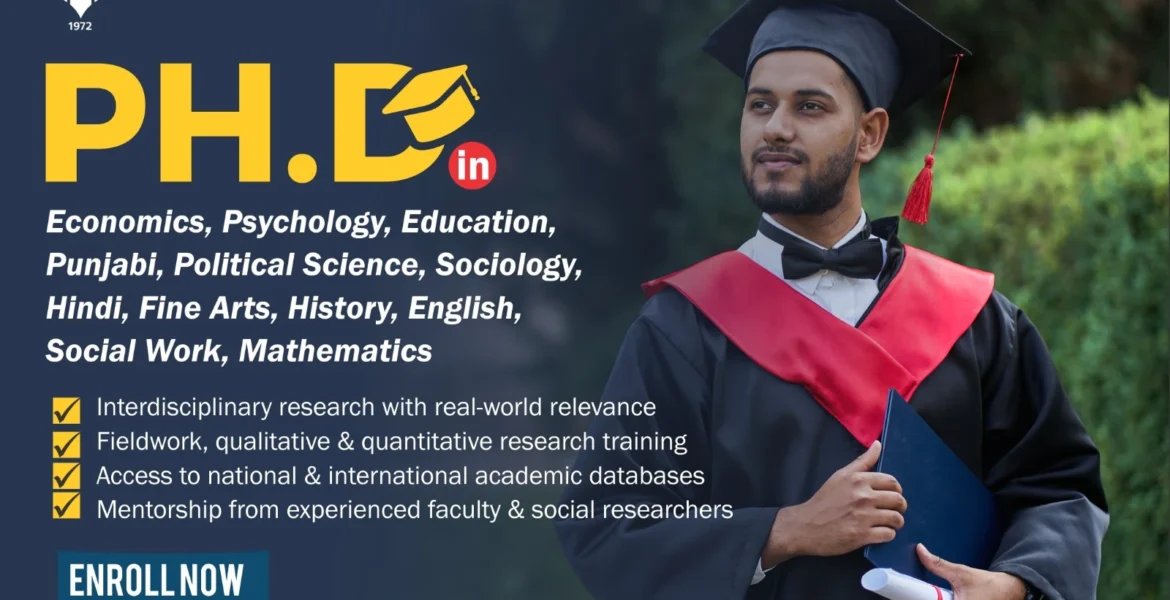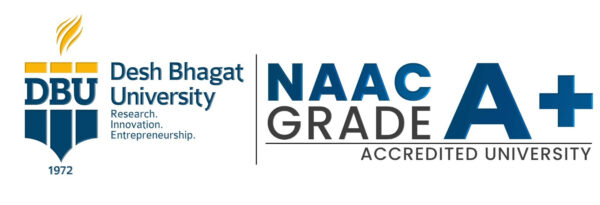PhD in Education in India: Eligibility, Salary, Admission 2026
July 19, 2025 2025-12-17 11:45PhD in Education in India: Eligibility, Salary, Admission 2026

PhD in Education in India: Eligibility, Salary, Admission 2026
Education plays an important role in shaping individuals and societies. For those passionate about improving educational systems, a PhD in Education is a powerful way to make meaningful contributions to the field. This degree helps individuals dive deep into the study of educational theories, policies, teaching methods, and much more. A PhD in Education opens doors to a wide range of career opportunities in academia, research, policy-making, and educational management.
If you are considering a PhD in Education in India, it is important to understand what the degree requires, the eligibility requirements, the admission process, research areas, career prospects, and potential salaries. In this article, we will explore all these aspects and give you the necessary details to help you make an informed decision about pursuing a PhD degree in Education.
What is a PhD in Education?
A PhD in Education is an advanced degree that focuses on studying different parts of education. It looks at how schools and education systems work, how education policies are made and used, how people learn, and the role of teachers, students, and schools. A PhD in Education is mainly about doing original research to create new ideas and knowledge to improve education.
The program is designed for those who wish to engage in high-level academic work, become educators, researchers, and leaders in the field of education. Whether you are interested in learning theories, educational psychology, or policy analysis, a PhD in Education offers the opportunity to specialize in a wide range of areas.
Duration of the PhD Program
The duration of a PhD in Education in India typically ranges from 3 to 6 years. This can vary depending on the university, the research project, and the student’s progress. Some students may take longer if their research requires more time or if they are balancing their studies with work. At many universities, including Desh Bhagat University, the PhD program is structured with flexible timelines, allowing students to finish their research at their own pace while still keeping high standards of quality and accuracy.
While a typical PhD in Education lasts 3 to 6 years, the actual time taken will depend on the complexity of the research, dissertation writing, and successful defense of the thesis.
Eligibility Criteria for PhD in Education
To apply for a PhD in Education, you need to meet certain eligibility criteria set by the university. These requirements ensure that you have a solid foundation in education before embarking on the challenging journey of doctoral research.
Here are the general eligibility criteria for pursuing a PhD in Education:
- Educational Qualification:
- You must hold a Master’s degree in Education (M.Ed.) or any related field like Educational Psychology, Educational Leadership, or Curriculum Development. Typically, you should have secured at least 55% marks in your Master’s degree (relaxable by 5% for candidates from reserved categories).
- NET/JRF Qualification:
- In many cases, candidates must have cleared the UGC-NET (National Eligibility Test) or JRF (Junior Research Fellowship). However, universities often exempt candidates from the entrance exam if they have already cleared the UGC-NET or JRF exams in Education or any other related subject.
- Research Proposal:
- Applicants are usually required to submit a research proposal as part of their application. This proposal should outline the intended area of research, objectives, and a brief methodology.
- Other Requirements:
- Some universities may also require a personal interview to assess the candidate’s research interests and academic background. The research proposal is typically evaluated during the interview to ensure it aligns with the university’s goals and resources.
Meeting these eligibility requirements is the first step in applying for a PhD in Education.
Admission Process
The admission process for the PhD in Education program generally involves multiple stages. These stages help universities assess the academic and research capabilities of potential candidates.
- Application Submission:
- First, candidates need to submit their online application on the university’s official website (https://www.admissions.deshbhagatuniversity.in/). The application will include personal details, academic records, and a research proposal.
- Entrance Exam:
- Many universities, including Desh Bhagat University, require candidates to take an entrance examination. The entrance exam usually consists of two parts: research methodology and subject-specific questions. This test ensures that candidates have a strong foundation in research skills and education-related knowledge.
- Interview:
- Shortlisted candidates from the entrance exam are then invited for an interview. During this interview, candidates present their research proposal to the Department Research Committee. This allows the committee to assess the relevance and feasibility of the proposed research.
- Final Selection:
- Candidates who perform well in both the entrance exam and interview are selected for admission into the PhD program. Some universities may also require the candidate to submit additional documents or undergo a final evaluation before admission is confirmed.
Research Areas in PhD in Education
The PhD in Education program at Desh Bhagat University covers various research areas, allowing students to specialize in topics that match their interests and career goals. Some of the most common research areas include:
- Curriculum Development:
- This area focuses on designing, developing, and evaluating curriculum and instructional materials. Researchers in this field explore how the curriculum can be improved to meet the needs of diverse learners.
- Educational Psychology:
- Educational psychology is about understanding how people learn. Researchers study how our thinking, emotions, and behavior affect learning. This helps improve teaching methods and create better learning environments.
- Educational Leadership and Administration:
- This area involves researching the roles of school leaders and administrators. Scholars in this field analyze leadership styles, decision-making processes, and strategies for improving the management of educational institutions.
- Special Education and Inclusive Education:
- Researchers in this field focus on creating educational programs and systems that cater to children with disabilities or learning challenges. The goal is to make education accessible to all, regardless of their abilities.
- Educational Policy and Planning:
- This area examines the development and implementation of educational policies at local, national, and international levels. Researchers analyze the impact of policies on education systems and suggest improvements.
- Technology in Education:
- With the rise of digital learning, this area focuses on integrating technology into education. Researchers study how digital tools can enhance learning and improve teaching methods.
Career Opportunities after PhD in Education
After completing a PhD in Education, individuals can pursue a variety of career paths. Here are some potential job options for PhD graduates:
- University Professor:
- A popular career choice is to become a university professor or lecturer in education. Professors teach courses in education, supervise research students, and contribute to academic publications.
- Educational Researcher:
- PhD graduates can work as educational researchers in universities, research institutes, or government agencies. Researchers conduct studies to develop new educational strategies, policies, and teaching methods.
- Policy Advisor:
- Many people with a PhD work as policy advisors for government organizations, educational institutions, or research groups. They use their research to help create educational policies and suggest improvements or changes to the current systems.
- Educational Consultant:
- Educational consultants work with schools and educational institutions to improve teaching methods, curriculum design, and overall educational strategies.
- Corporate Trainer:
- PhD graduates can work in corporate settings as trainers, designing and delivering training programs for employees on various topics, including leadership, communication, and professional development.
- Government Services:
- Many graduates join government education departments, working on policy implementation, curriculum development, and educational assessments.

PhD in Education Salary Expectations
The salary of a PhD in Education graduate depends on the career path chosen and the level of experience. Here are some salary ranges for different roles:
- University Professor:
- An assistant professor in education typically earns between ₹6,00,000 and ₹10,00,000 per year. Senior professors or heads of departments can earn ₹12,00,000 to ₹15,00,000 annually.
- Educational Consultant:
- Educational consultants can earn ₹7,00,000 to ₹12,00,000 per year, depending on their experience and expertise.
- Policy Analyst:
- Policy analysts in the education sector typically earn between ₹6,00,000 and ₹10,00,000 annually, depending on the organization and location.
- Educational Administrator:
- Educational administrators, such as school principals or department heads, can earn between ₹8,00,000 and ₹12,00,000 per year.
- Researcher:
- Educational researchers working in universities or research institutions typically earn ₹5,00,000 to ₹8,00,000 annually.
- Corporate Trainer:
- Corporate trainers can expect to earn between ₹6,00,000 and ₹9,00,000 per year, depending on the size of the company and their experience.
Entrance Exams 2025
| Event | Date | Time / Notes |
|---|---|---|
| Start of Online Registration | July 9, 2025 | |
| Last Date to Fill Online Application | July 28, 2025 | |
| Entrance Examination (Online) | August 2, 2025 | 11:00 am – 1:00 pm |
| Result of Entrance Examination | August 5, 2025 | |
| Interview (Offline Only) | August 9, 2025 | 10:00 am – 1:00 pm Venue: Mahapragya Hall, DBU Campus |
| Result of Interview | August 9, 2025 | 03:00 pm |
| Students Biometric Registration | August 9, 2025 | From 03:00 pm onwards |
| Fee Deposit Begins | August 9, 2025 | From 03:30 pm onwards |
| Last Date for Fee Deposit | August 18, 2025 |
Financial Support and Scholarships
Many students pursuing a PhD in Education are eligible for financial support through scholarships and fellowships. Some options include:
- University Scholarships: Many universities offer merit-based scholarships to support PhD candidates.
- Government Fellowships: Programs like the UGC Junior Research Fellowship (JRF) provide financial support to students engaged in research.
- Education Loans: Banks offer loans for PhD students to cover tuition fees and living expenses.
Conclusion
Pursuing a PhD in Education offers a fulfilling career in academia, research, or policy-making. The program helps students gain skills to improve the education system through new research and real-world solutions. With many career options and good salaries, a PhD in Education can open doors to various successful and fulfilling jobs.
FAQs
1. What is a PhD in Education?
A PhD in Education is a doctoral degree where students conduct advanced research in the field of education. The focus is on improving educational systems, teaching methods, curriculum development, and policies. It helps scholars contribute new ideas and knowledge to enhance the education system at various levels.
2. What are the eligibility criteria for a PhD in Education?
To apply for a PhD in Education, candidates must have a Master’s degree in Education or a related field, with at least 55% marks. Candidates with UGC-NET or JRF are often exempt from the entrance test. A research proposal is also required, outlining the topic of study.
3. How long does it take to complete a PhD in Education?
A PhD in Education typically takes between 3 to 6 years to complete. The duration can vary depending on the student’s progress, the complexity of their research, and how much time they dedicate to writing their thesis. Some students may take longer depending on their research area.
4. What is the admission process for a PhD in Education?
The admission process for a PhD in Education generally involves submitting an application, clearing an entrance exam, and attending an interview. The entrance exam includes questions on research methodology and subject-specific topics. If shortlisted, candidates present their research proposal in the interview for further evaluation.
5. What are the main research areas in a PhD in Education?
In a PhD in Education, some key research areas include curriculum development, educational leadership, educational psychology, inclusive education, policy planning, and technology in education. Students can specialize in any of these areas based on their interest and academic goals to explore how education systems can improve.
6. What are the career opportunities after completing a PhD in Education?
After completing a PhD in Education, graduates can pursue careers as university professors, researchers, policy advisors, educational consultants, or administrators. They can also work in government agencies, NGOs, international organizations, and corporate training roles, shaping educational policies and systems worldwide.
7. What is the salary of a PhD in Education graduate?
The salary for a PhD in Education graduate can vary depending on the role and experience. On average, university professors earn between ₹6,00,000 and ₹10,00,000 per year, while educational consultants and policy analysts earn between ₹7,00,000 and ₹12,00,000 annually. Salaries can increase with experience and expertise.
8. Can I pursue a PhD in Education online?
Yes, some universities offer online PhD in Education programs, though traditional programs are more common. Online PhDs provide flexibility for students who are working or have other commitments, but it is important to ensure that the university is accredited and that the program meets academic standards.
9. What subjects are studied during a PhD in Education?
During a PhD in Education, students study subjects like educational psychology, research methodology, curriculum development, leadership in education, and policy analysis. The program also includes coursework on learning theories, educational technology, and social issues in education that help guide the student’s research.
10. How can I apply for a PhD in Education?
To apply for a PhD in Education, you need to visit the university’s website ( https://www.admissions.deshbhagatuniversity.in/ ), fill out the online application form, and submit necessary documents like academic transcripts, identification proof, and a research proposal. You will also need to prepare for an entrance exam and attend an interview for the final selection.







